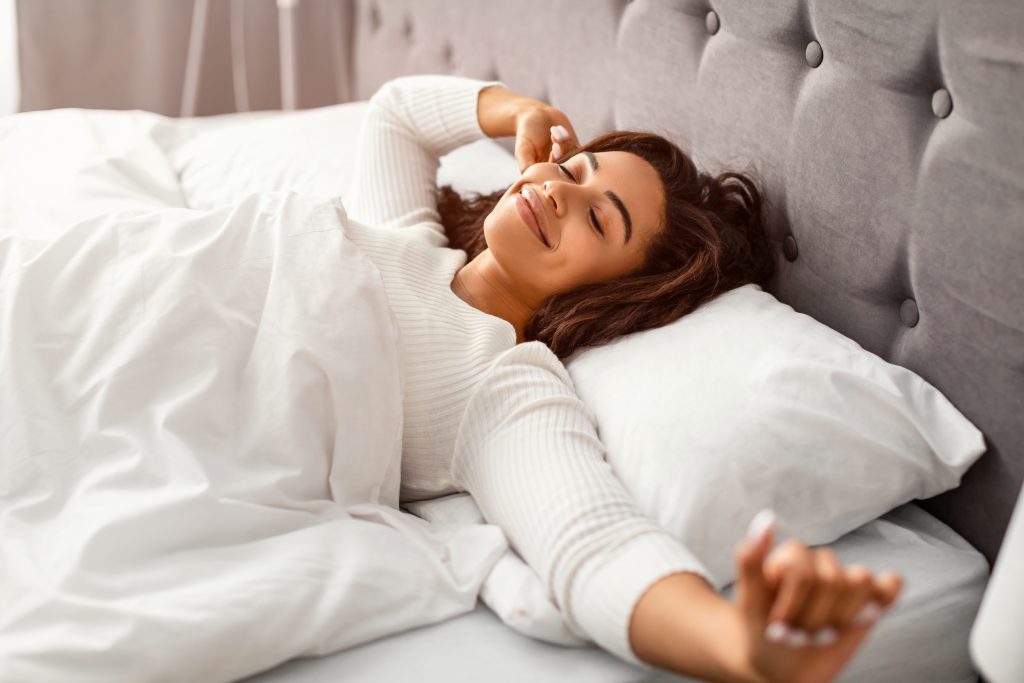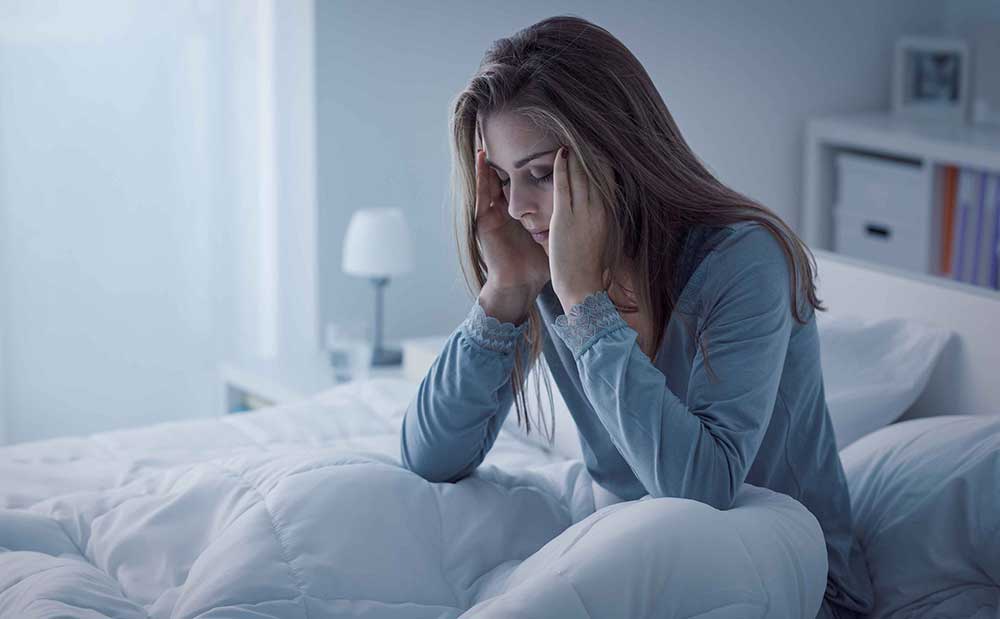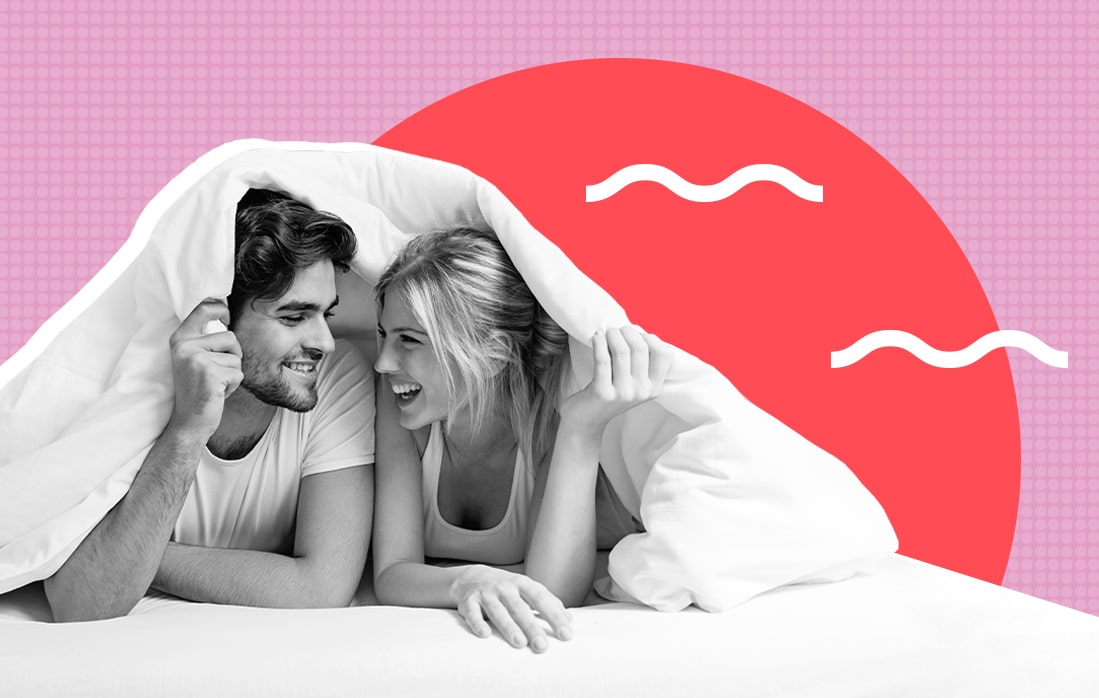
We’ve all heard that being grateful is good for our mental health. But we know that it can be hard to squeeze in moments to practice gratitude during a busy day. Turns out the first step to being more grateful might just start with a good night’s sleep.
According to a new study conducted by Baylor University, researchers found that those who added an average of 46 minutes of sleep to their nightly routine experienced higher levels of gratitude and resilience. (1)
“Polling data indicates that happiness has declined in the U.S. in recent years, and during the same time period, sleep problems have been widespread,” said Michael Scullin, lead investigator and associate professor of psychology and neuroscience at Baylor University.
The study aimed to discover the relationship between healthy sleep and positive attributes associated with happiness. It is one of the first studies of its kind.
“While it’s recognized that sleep loss worsens mental health symptoms, there have not been experimental studies to test whether increasing sleep improves the positive aspects of life like feelings of purpose, hope, and gratitude,” Scullin added.
The Study’s Findings
The research included data from 90 people. Each participant was randomly assigned to go to bed earlier than usual, later than usual, or at their normal bedtime. Researchers then measured their levels of gratitude, resilience, and overall flourishing.
Those who went to bed early gained an average of 46 minutes of sleep each night, whereas those who went to bed late lost an average of 37 minutes of sleep. (1)
So is it true that getting more sleep makes you more grateful?
The study found that those assigned to early bedtimes wrote twice as much on their gratitude list as those who did not go to bed early.
“Subtly increasing sleep increased people’s gratitude, resilience, and feelings of flourishing in life,” said Scullin.
Gratitude and Sleep
Being grateful, or appreciating the good in life, is often linked to better overall well-being. According to the National Institutes of Health (NIH), being thankful tends to encourage positive feelings that boost our emotional state and mental health. (2)
As a result, these findings do not come as a surprise to some sleep experts. It is well understood that there is also a strong connection between sleep quality and our mental health.
“Quality sleep is the foundation on which everything else is built — If you want to lose weight, improve your workouts, better your mental health, or increase your energy levels, better sleep can make accomplishing those things easier,” said Dr. Shelby Harris, Director of Sleep Health at Sleepopolis.
We know all too well that it’s hard to feel at our best when we are sleep-deprived. But sleep also impacts our happiness and overall quality of life.
Want to be more grateful, happy, and healthy? It starts with a good night’s sleep.
“Poor sleep quality and/or not enough sleep can lead to serious physical and mental health issues, such as problems with memory, attention, cognitive processing, balance, cardiovascular disease, diabetes, higher risk of falls and accidents, more depression/anxiety and mood issues and a poorer quality of life,” said Dr. Harris.
The American Academy of Sleep Medicine recommends that adults get at least 7 hours of sleep per night to promote good health, alertness, and productivity.
While it may be hard to squeeze in an earlier bedtime, the benefits of those extra minutes of sleep just might make you more grateful, resilient, and flourishing.

Manage Stress for Better Sleep

There’s a Strong Link Between Sleep Quality and Relationship Satisfaction: Here’s What That Means

Are Alarm Clocks — And The Snooze Button — Really Bad For Sleep?

Why Are Younger Women Getting So Much Less Sleep Than Men? It’s the Stress Factor
Sources
1. Alexander Do, Sarah Schnitker, Michael Scullin. 0184 Gratitude, Flourishing, and Prosocial Behaviors Following Experimental Sleep Restriction and Sleep Extension. SLEEP, 2024; 47 (Supplement_1): A79 DOI: 10.1093/sleep/zsae067.0184
2. Sansone RA, Sansone LA. Gratitude and well being: The benefits of appreciation. Psychiatry (Edgmont (Pa : Township)). 2010;7(11):18-22. https://www.ncbi.nlm.nih.gov/pmc/articles/PMC3010965/
